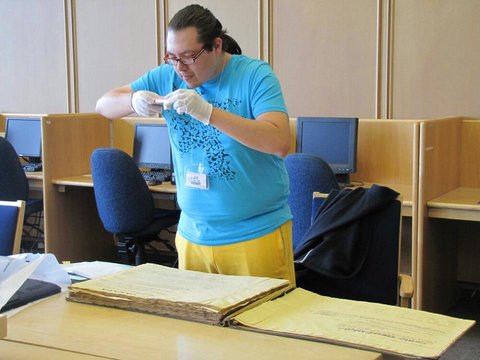Rob Houle
Major: Psychology
Minor: Native Studies
Where are you from: Swan River First Nation in Treaty 8
Awards/Achievements: Medal of Valour recipient for saving someone from drowning
Where did you grow up?
A variety of places, mostly in Kinuso and Slave Lake, AB. I moved to Edmonton out of High School and have resided here since 2002.
Why did you choose U of A?
I struggled during my first attempt at U of A in 2006. And after working as a security guard at local Edmonton casinos for a couple of years, I decided it was time to head back to school because there was no opportunity for promotion where I was. Also during that time, my wife, Laurel Leigh and I welcomed a son into the world and I wanted to refocus my life. I thought education was a good way to do this.
Why did you choose the Faculty of Arts?
When I was midway through my studies at Yellowhead Tribal College, I had taken a number of courses that ranged from Native Studies, to political science to philosophy. I liked the psychology arts courses the best because I knew I wanted to be a counselor. I also knew that I wanted to take a more theoretical approach to psychology, so I chose the arts-based approach.
Career-wise why choose a major in psychology?
There are a lot of opportunities especially for Aboriginal graduates with a background in psychology to become a counselor in Aboriginal communities.
Who inspired you growing up?
My aunt is a counselor at Northern Lakes College in High Prairie, AB and she helped me out a lot when I was growing up, as well I was raised by a single mom so she was also a great inspiration.
Why choose education as a path?
Going to university has helped me to decolonize myself. Through taking Native Studies courses, I learned a lot about what was done to Aboriginal people and ultimately this knowledge has made me understand myself better and the automatic messages Aboriginal peoples receive on a daily basis. The daily dose of "We are no good" or "We don't matter and will never amount to anything" is a myth that is constantly being perpetuated and eventually believed. Through education and the traditional lifestyle my family leads, I am learning why this myth occurs, and how to dispel it.
Tell me more about the traditional lifestyle you lead:
My family leads a lifestyle that is closely connected to Aboriginal culture. When I started learning about the traditional ways of Aboriginal culture, it helped me heal the gap that was formed being separated from my community. Some of the activities we are involved in is the Powwow trail (my son is a Chicken dancer), I love to make traditional Aboriginal foods like bannock, I also engage in beading in my spare time and we are involved in a number of other activities that I hold close to my heart.
Any last comments:
U of A has a good Aboriginal base here and it is growing. When I started here in 2004 there seemed to be nothing going on, but now we have the Aboriginal Student Services Center for support, the Aboriginal Student Council for student activities and get-togethers, and other Aboriginal groups and events that are recognized by the university community. There is more of an Aboriginal presence now, and I am proud to be getting my degree from here.